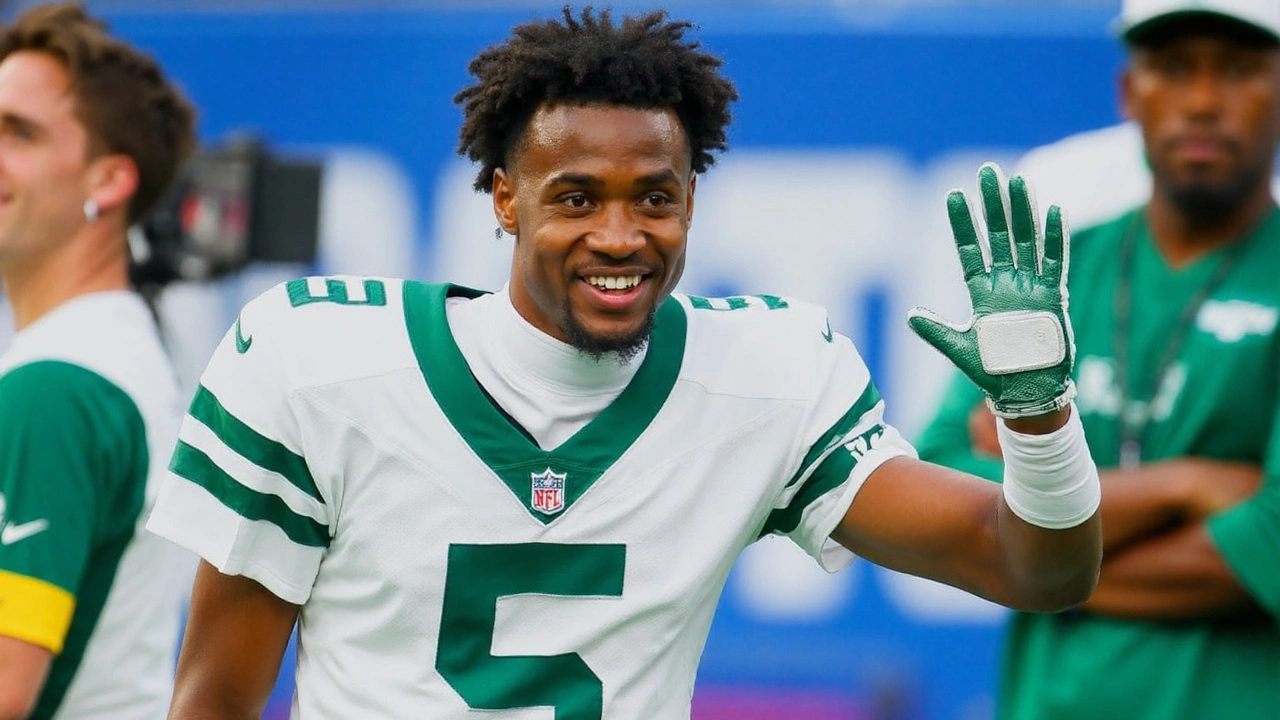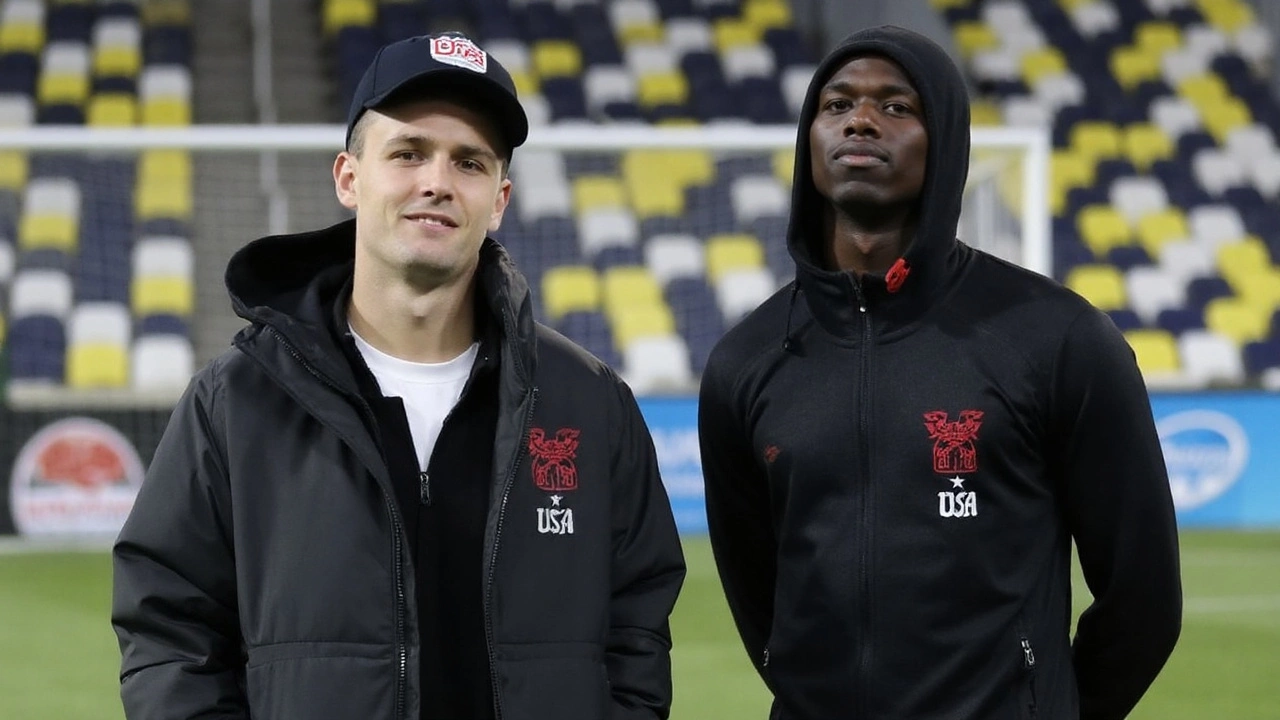Weah won't walk back 'evil' remark
Tim Weah isn’t retreating from his words. The Marseille and U.S. men’s national team winger says he doesn’t regret calling some former USMNT players turned pundits “evil,” a line he delivered while defending close friend and teammate Christian Pulisic in a new docuseries. Asked again about it during a Thursday media session, he said he stands by it “one hundred percent.”
Weah’s comments first appeared in the Paramount+ series centered on Pulisic. In the episode, he takes aim at ex-players who blasted the current team’s performances and commitment — criticism that flared when Pulisic skipped the summer Gold Cup to rest after a heavy club season. “I think those guys are chasing checks,” Weah said in the show. “I just feel like they’re really evil… Those are the same guys that’ll turn around and shake your hand and try to be friendly with you at the end of the day.”
He didn’t paint the group with total disdain. Weah said he grew up watching many of those voices. But he also argued their tone can cross a line and said previous U.S. teams “didn’t win anything either.” That last point is his jab, not a history lesson. The U.S. has lifted regional trophies, including recent Concacaf Nations League titles and multiple Gold Cups in past eras, while still chasing a breakthrough on the game’s biggest stage.
This is where the friction lives: where fair analysis stops and personal shots begin. Former internationals now fill TV desks and podcasts. They know the pressures and try to hold the new generation to a high bar. Players hear the judgment and feel it as a brand of betrayal when it gets sharp or motives are questioned. Weah’s “evil” label is the blunt tip of that debate.
When reporters pressed him on whether he would pick a softer word today, he didn’t budge. The winger said he respects the legends who came before him but thinks some of them go too far, especially when they talk about commitment and mentality. The message from him is simple: criticize the game, sure, but don’t question the person.
The flashpoint was Pulisic’s decision to skip the Gold Cup to recharge. After a long club campaign, the staff accepted it. A few former players didn’t. They wanted their best attacker on the field no matter what. That philosophical split — rest versus duty — fueled the bigger argument over what accountability should look like inside a program that expects to make a leap by 2026.
Inside camp, the priority now is to keep the room steady. Players say they tune out noise, but the noise is everywhere. It’s not just postgame TV hits anymore; it’s clips sliced for social feeds, viral quotes, and daily debate shows. Younger players, including Weah, grew up online. They know how fast a comment travels and how it can shape a narrative long after the next match kicks off.
Pulisic sits at the center of this. He carries the heaviest spotlight and the biggest workload. He’s also the one teammates often rush to protect. Weah’s defense isn’t just about friendship; it reflects a broader feeling among players that the standard can be high without being hostile. They want specific, tactical criticism — what went wrong with the press, why the midfield spacing failed — not character judgments.
There’s also the shadow of 2026. The U.S. will co-host the World Cup with Canada and Mexico. That means louder scrutiny, bigger crowds, and no hiding when things go flat. The current core has already won regional silverware and beaten big teams in one-off games. But the real question is whether they can manage a month-long tournament at home, a different mental test entirely. Every public skirmish like this becomes a subplot to that story.
Weah, back with the national team for the first time since the comments aired, is focusing on football. He’s expected to play wide, stretch backlines, and give the attack vertical threat — the things that made him a trusted starter in big Concacaf nights. Whatever’s said on the outside, his job is the same: create chances, track back, and help the front line defend from the front.
What happens next depends on whether anyone wants to escalate. Former players could answer back. Some will argue they have a duty to be blunt because sugarcoating doesn’t raise standards. Others in the media will say the tone has gotten too hot and too personal. It wouldn’t be surprising if a few voices reach out off-camera to clear the air — that kind of quiet conversation happens more than fans realize.
If you zoom out, this is the classic push-pull in every mature soccer culture. England has it. Germany has it. The U.S. is growing into it. The best version is tough but fair: hammer the tactics and effort, protect the humans. Teams that handle this well get sharper without turning bitter. Teams that don’t can split into camps, with veterans and pundits trading shots while performances slip.
For now, the tangible stakes sit on the field. The U.S. will spend the next year tuning details: set-piece routines, midfield rotations, and more efficient finishing against low blocks. The staff wants cleaner game management and fewer soft moments late in halves. None of that changes because a quote went viral, but the temperature around the team does affect how every flat spell is judged.

Why this fight over criticism matters before 2026
The U.S. has more talent than past cycles and a deeper bench in Europe. That lifts expectations and hardens the commentary. When the team wins, the praise is big. When it stumbles, the judgment is bigger. Players ask for nuance; analysts ask for consistency. Both sides say they want what’s best for the program, even if they disagree on how to get there.
Here’s the core of the argument, stripped down:
- Content versus tone: Breaking down mistakes is fine; calling players’ commitment into question is where it stings.
- Honesty versus heat: Strong opinions drive audience and, yes, paychecks. That can reward outrage over insight.
- Standards versus empathy: Fans want results. Players want understanding when rest and recovery are the right call.
- Past versus present: Yesterday’s teams built the platform. Today’s team is asked to jump higher — and to do it under a brighter light.
Weah has chosen his side of that line and isn’t moving it. Whether people agree with his word choice or not, the message landed: the current locker room hears the criticism and feels the bite. If the team turns strong performances into a steady run, this moment will fade into the background noise. If not, the same quotes will return in every debate show monologue from now to kickoff in 2026.
